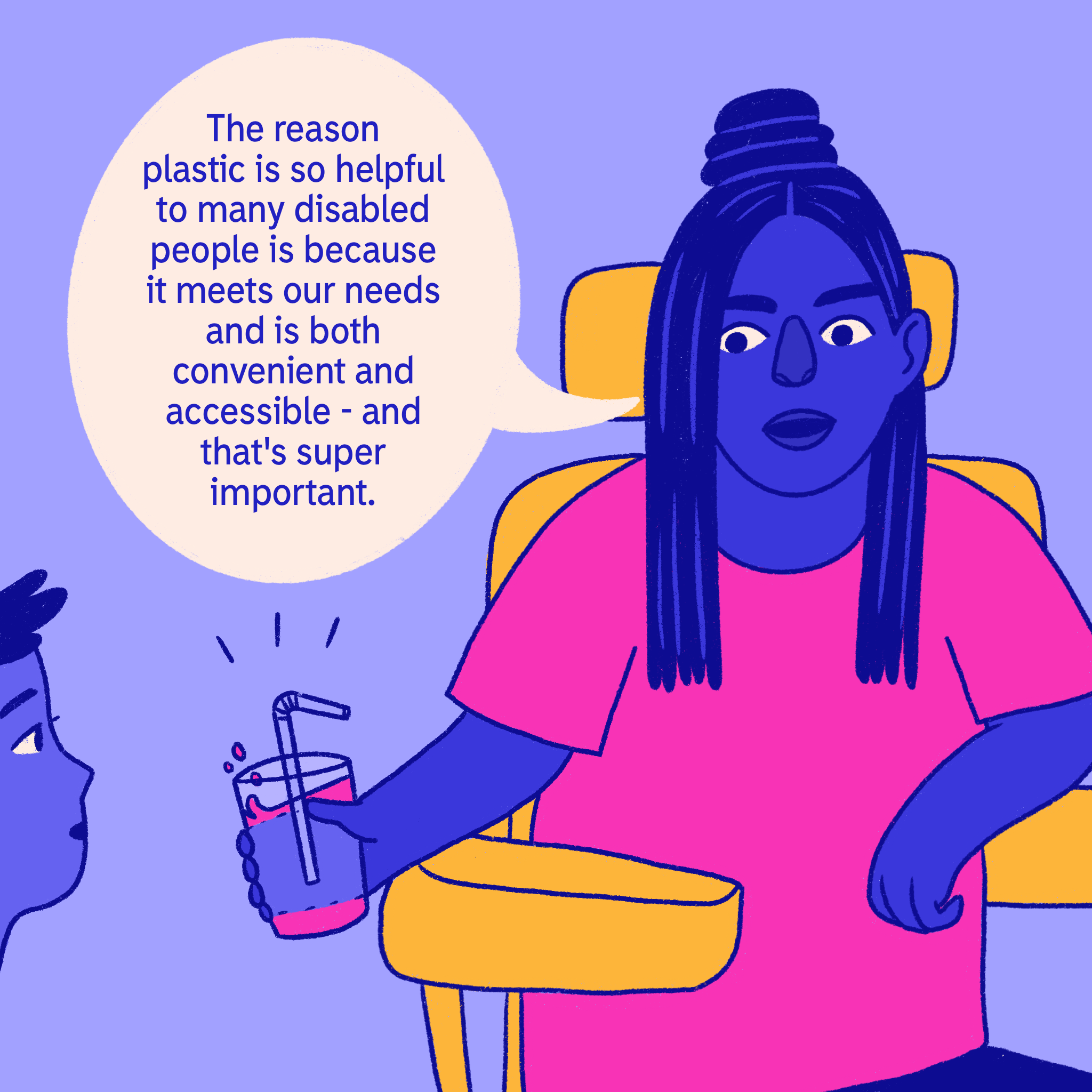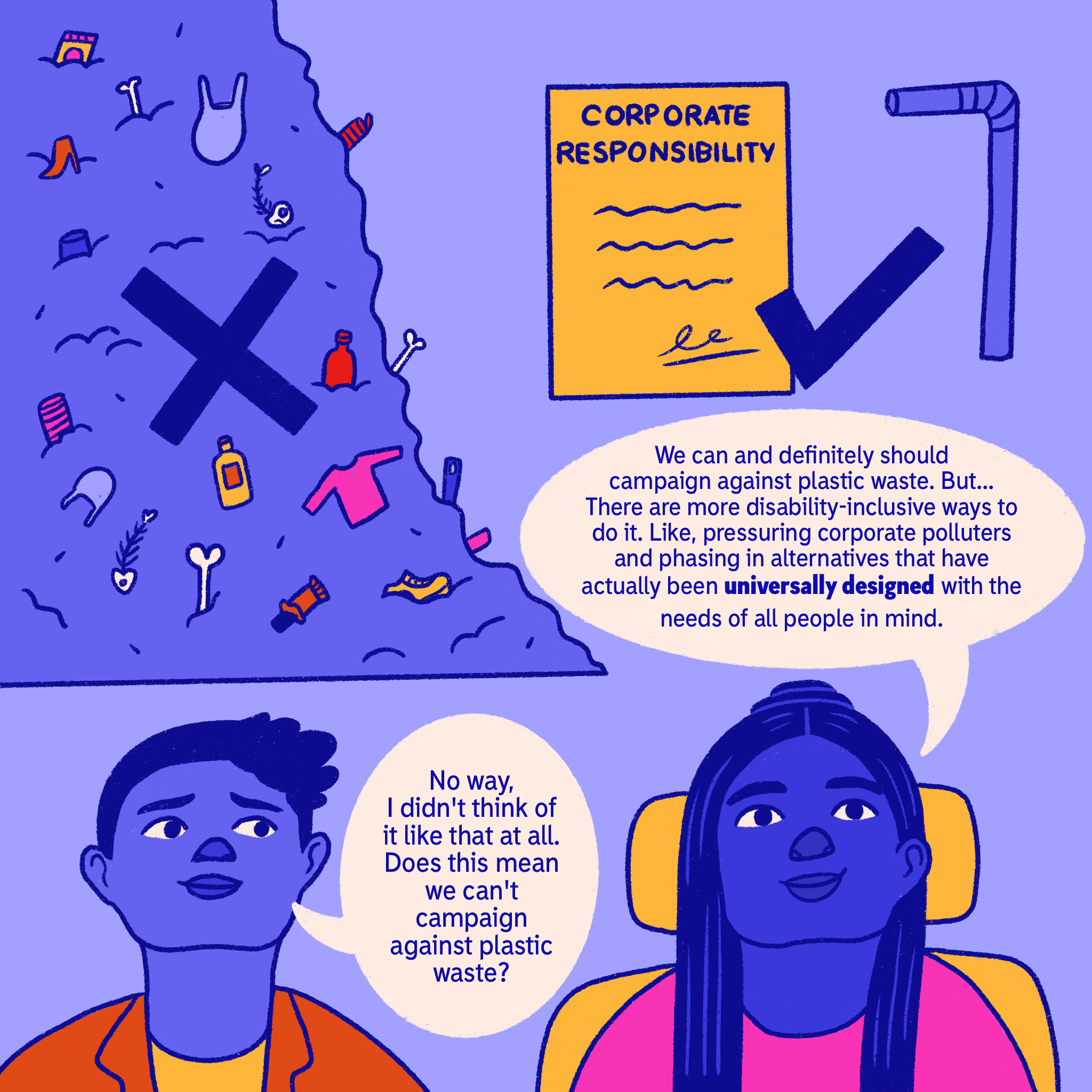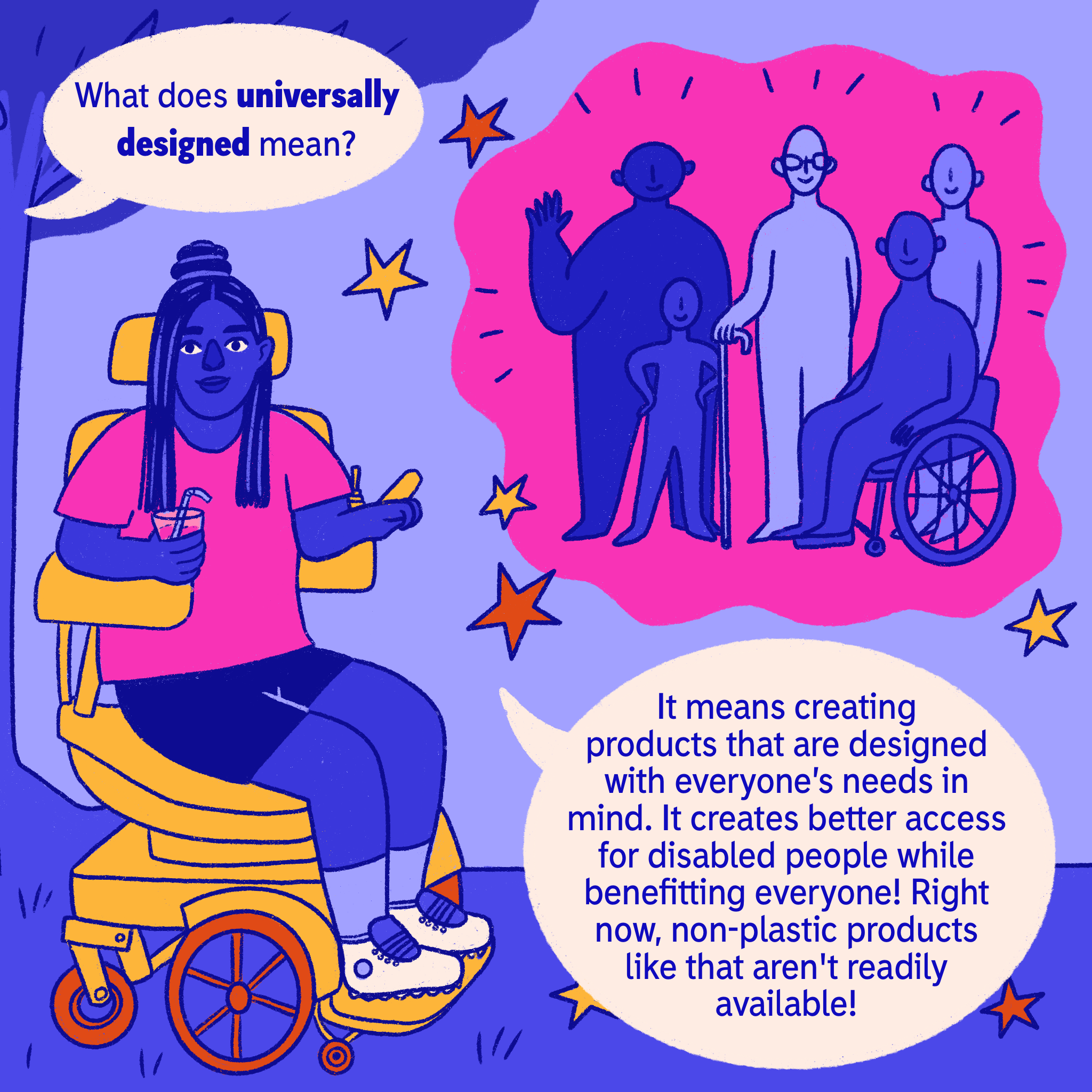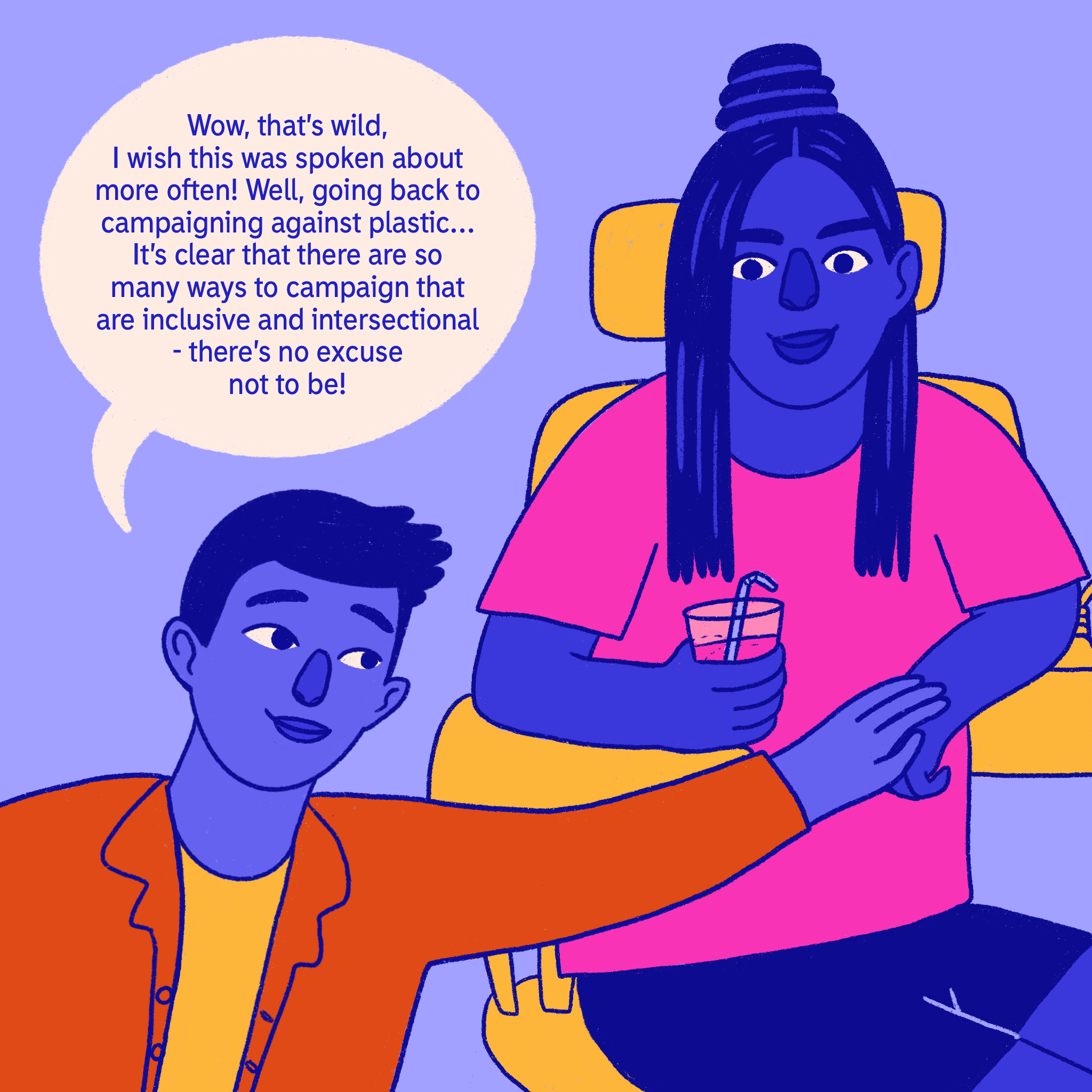Disability Justice
In Britain, 14.1 million people have a disability, and globally they represent around 15% of the population. However, far too often this community is left out of environmental conversations, a key area of this being the campaign against plastics where the needs of disabled people have not historically been taken into consideration at all.
Disabilities and plastic
Single use plastic items can be essential for people with disabilities to live independently. Premade and pre-peeled food are vital for people with accessibility issues which make chopping and peeling difficult or impossible. People may rely on online shopping and home deliveries, which often is delivered in layers of plastic packaging which isn’t recyclable.
Alternatives to plastic also aren’t always appropriate for people with disabilities. Take plastic straws - their flexibility is a key element for people with disabilities which many alternative materials cannot provide, metal/glass straws can pose a safety risk and the constant washing of reusable straws can be a struggle for many people.
Read more about why some disabled people need access to plastic ('placcess') in this blog from Disability Rights Lawyer Dr Abigail Pearson.



Items such as reusable bottles can also be expensive. Disabled people’s living costs are on average 25% higher than non-disabled people, there is a 33% unemployment gap and the proportion of disabled people living in poverty is 8% higher. Given these economic inequalities, it shouldn't be assumed that everyone has access to these alternatives.
A LACK OF TRUST
Currently, the majority of disabled people in the UK do not trust in environmental organisations to deliver campaigns that are disability-inclusive. This is because many disabled people feel that campaigns by environmental organisations do not consider or centre their needs.
Market research conducted by Ananya Roa-Middleton found that out of 154 UK-based disabled people, only 11.7% trust environmental organisations to create disability-inclusive campaigns around themes like plastic pollution.
These are shocking statistics and as an organisation committed to intersectionality, climate justice and just transitions - it’s vital that we address this.
WHAT ARE WE DOING?
Our aim is to gather even more evidence about what really happens to our plastic waste, and use this evidence to persuade the government, big brands and supermarkets to lead the way at talks for a Global Plastics Treaty. We are calling for a reduction in plastic production by 75% by 2040. Plastic that remains available, must be accessible and without stigma whilst universally designed reusable items are developed which cater to everyone's needs.

Comic panels by Illustrator and Disability Activist Ananya Rao-Middleton (@AnanyaPaints)



